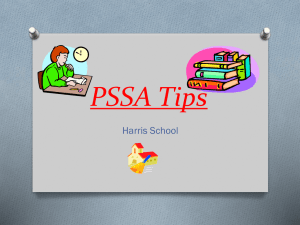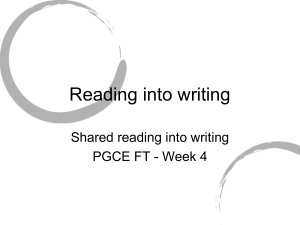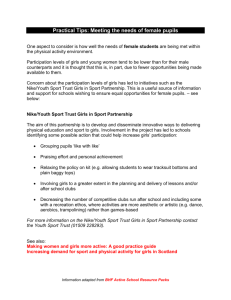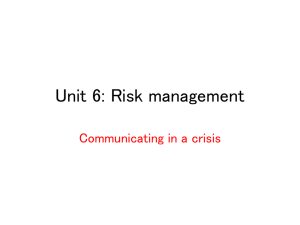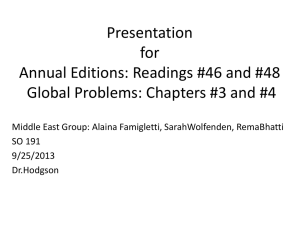Sport Psychology Tips for Peak Performance and Sailing Retention
advertisement
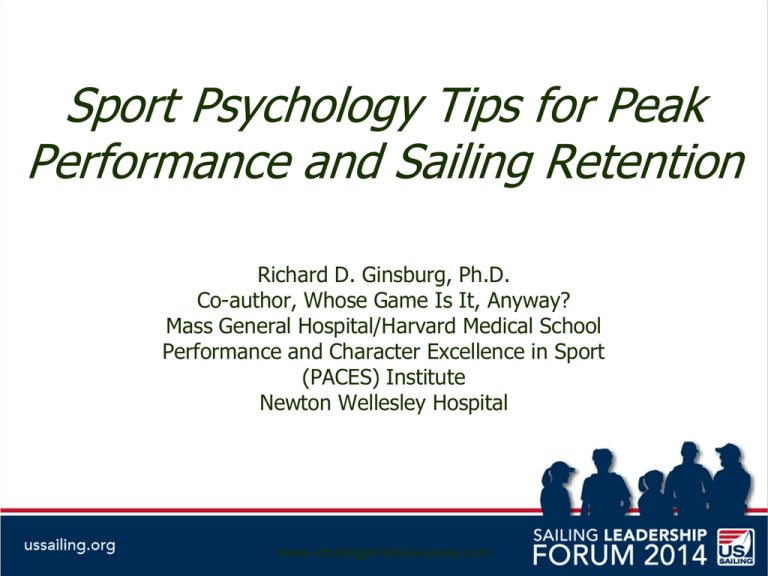
Sport Psychology Tips for Peak Performance and Sailing Retention Richard D. Ginsburg, Ph.D. Co-author, Whose Game Is It, Anyway? Mass General Hospital/Harvard Medical School Performance and Character Excellence in Sport (PACES) Institute Newton Wellesley Hospital www.whosegameisitanyway.com Key Ingredients to Great Leadership • • • • • • • Show love for sailing & kids Be guided by your values and ethics Coach to the age of your sailor Be transparent Be flexible Create partnerships with your sailors Stay within yourself www.whosegameisitanyway.com Peak Performance • • • • • • • Relaxed Effortless Focused in the moment Positive Confident Fearless In the Zone www.whosegameisitanyway.com Sport Psychology Skills • Goal Setting • Arousal Control • Concentration • Visualization • Self-Talk www.whosegameisitanyway.com Fear of Failure • Elite athlete dilemma • Pete Rose’s advice • Longest NCAA championship winning streak • High school athletics • Higher goals www.whosegameisitanyway.com Building Resilience Youth Fun Safety Friendship Elementary SHARPP- Spirit Hustle Attention Respect Positive Practice www.whosegameisitanyway.com Resilience in High School & Beyond • • • • • • • • • Integrity Effort Dedication Compassion Selflessness Drive Patience Self-Discovery Fun - Loyalty - Perseverance - Teamwork - Resilience - Discipline - Commitment - Respect - Collaboration - Creativity www.whosegameisitanyway.com Who are we coaching/mentoring? www.whosegameisitanyway.com What does an emotionally healthy 12-year-old look like? (Ages 6-12) • Develops Competencies and • • • • Established Friendships Has Multiple Interests Avoids Specialization Increases Frustration Tolerance Experiences Huge Variation in Skills www.whosegameisitanyway.com Elementary School Tips • Competition is second place • Instruction is brief • Instruction is positively framed • Roles are varied www.whosegameisitanyway.com What does an emotionally healthy 18-year-old look like? (Ages 13-18) • • • • • • • • Growing Sense of Identity Awareness of Strengths and Limitations Move Away from Parents toward Peers Integrating Sexuality Can Think about Thinking! Increased Sense of the Needs of Others Increased Capacity to Manage Emotions Humility www.whosegameisitanyway.com Adolescent and Young Adult Tips • Solidify roles • Simplify • Utilize and normalize failure • Celebrate growth • Remember development www.whosegameisitanyway.com Differences Between Coaching Boys and Girls • Boys are more competitive, aggressive and confident • Girls are more team-oriented, collaborative & coachable • Girls may care more about relationships than outcomes – Social cohesion vs. task cohesion • Girls internalize mistakes; boys externalize them, which greatly influences how they respond to criticism www.whosegameisitanyway.com Take Home Tips • • • • • Use 5:1 ratio at least Incorporate accurate praise Pose criticisms as positive suggestions Follow up Be sensitive to sailor differences www.whosegameisitanyway.com Take Home Tips • Show your passion • Assign valued roles • Remember your values • Attend to age differences • Stay within yourself www.whosegameisitanyway.com www.whosegameisitanyway.com


